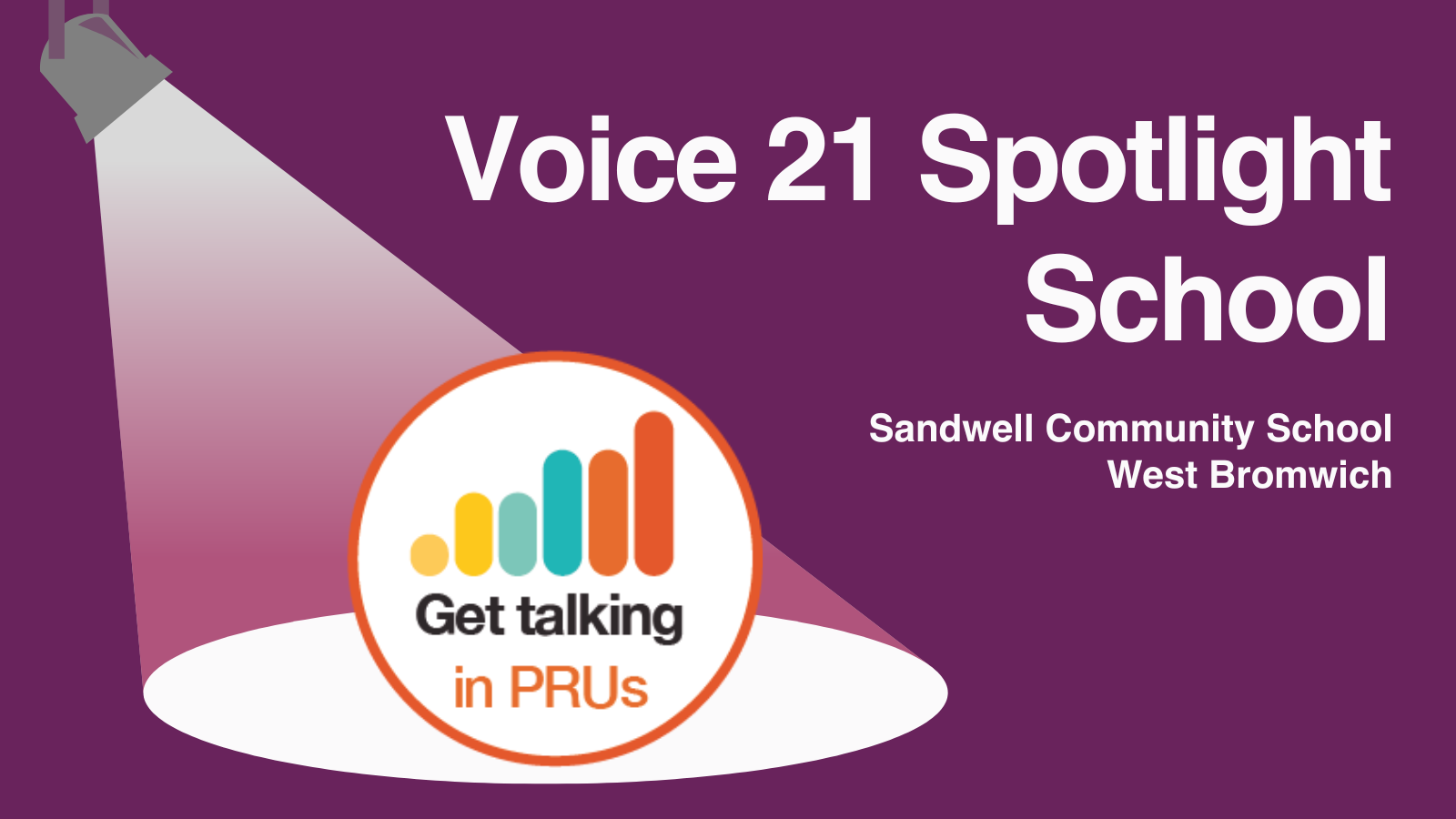Oracy at Sandwell Community School PRU

Sandwell Community School is a Pupil Referral Unit (PRU) for KS3 and KS4 students. Many young people have had experiences that have impacted their engagement with learning and society, resulting in feelings of isolation, high levels of anxiety, frustration, and low self-esteem.
The oracy lead at Sandwell took part in Voice 21’s ‘Get Talking in PRUs’ project, which improved their understanding of how oracy fits into teaching and learning; equipped them with practical ideas, and left them feeling motivated to ensure their students benefit from a high-quality oracy education.
Voice 21 worked with the school’s oracy lead to creating a newsletter sharing a resource each week that teachers could use with their students. Staff was also supported with learning walks and observations to build oracy into their lesson planning.
“I can feel it… it’s a seismic shift” – Kevin Morgan, Executive Headteacher
“You’re legitimising something [oracy] that goes on a lot in PRUs” – Oracy Champion
“In a job you’ll need it so they [schools] should be focusing a bit more on your communication” – Pupil
Talk is central in PRUs, but staff have rarely previously had access to formal training in oracy, so working with Voice 21 was seen to add status and importance to both learning to and through talk.
Sandwell now sees oracy as an essential part of the process of re-engaging students with their learning, through the building of trusting relationships with staff and peers, the ability to exchange ideas in the classroom – critically, listening as well as talking – and improving written skills through talk. Further, staff see students’ improved ability to articulate themselves as crucial to securing their route back to mainstream education or their next steps in further education and employment.
“Instead of staying mad I’d get my point across and we’d talk about the situation and listen to each other’s points” – Student.
“Oracy has enabled us to discuss it [sensitive topics] a bit more… Everyone has the self-esteem they need to participate in those discussions.” – Oracy Lead.
“[On No Pens Day Wednesday] because you’re chatting about the work it builds the relationship and then if I have any other issues, I know I can go to her [the teacher].” – Student.
“Hearing everyone else’s opinions helped me to develop my answer” – Pupil.
“It’s upped my grade – I didn’t think I was going to pass English [GCSE] but now I’ve got a 7” (a 7 is a high grade, roughly equivalent to an A under the old system) – Student.
“If our group explains, people will admit they’re struggling and get involved” (discussion of the benefits of peer-to-peer explanations in Maths) – Student.
“It’s the changing of the ethos that’s made the biggest impact – it’s given staff and students the confidence to talk” – Oracy Champion
Staff at Sandwell intend to continue to develop their oracy curriculum, particularly with respect to how students progress through their time at the school.
“It’s getting the culture right and embedding it over the next couple of years”. Oracy Lead
This approach has been positively received locally, with interest in oracy from their Local Authority, and a very positive reaction from their School Improvement Advisor. This long-term mindset, paired with local support, suggests that Sandwell is likely to continue developing excellent oracy practice over the next few years.
© 2024 Voice 21. Voice 21 is a registered charity in England and Wales. Charity number 1152672 | Company no. 08165798